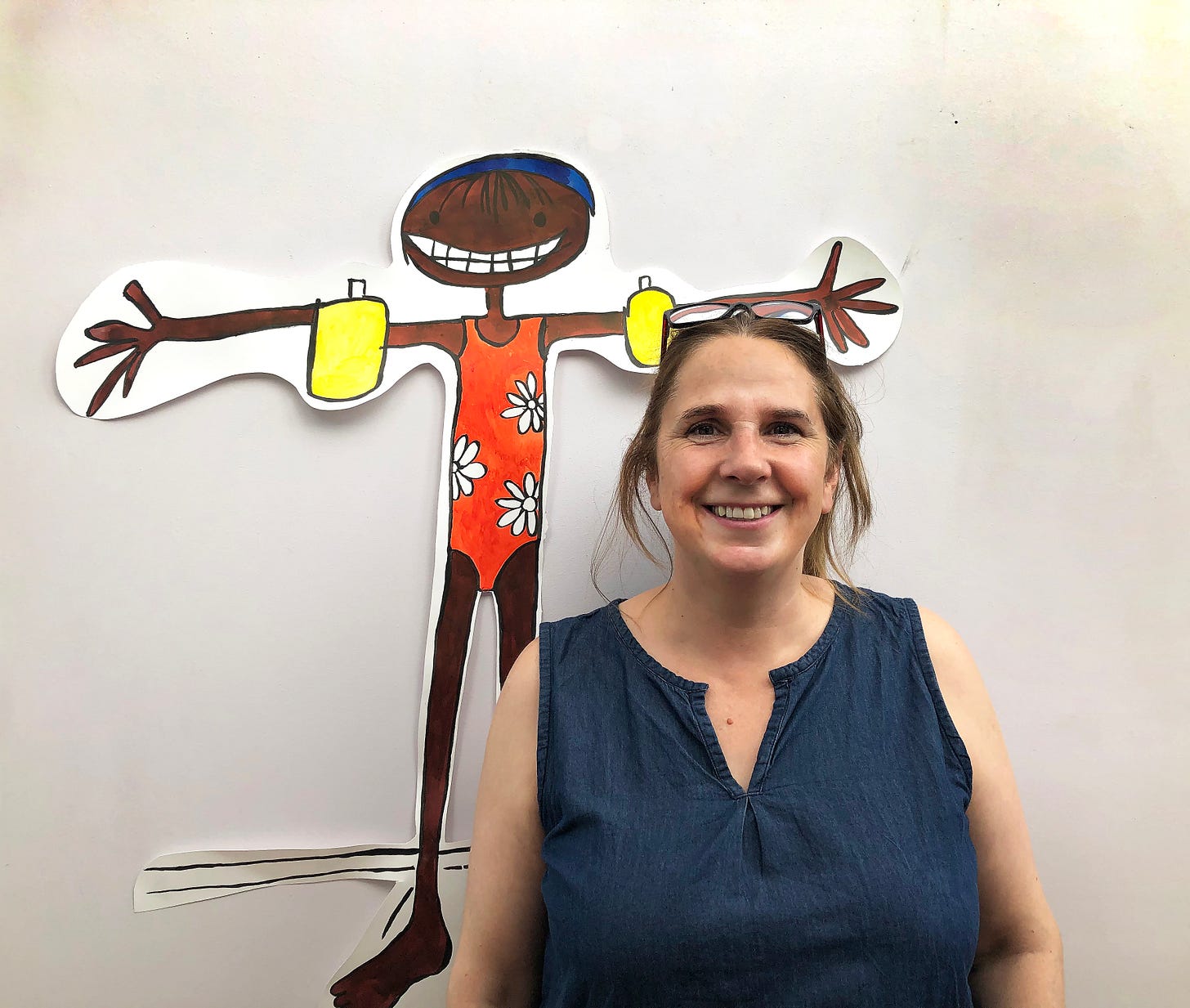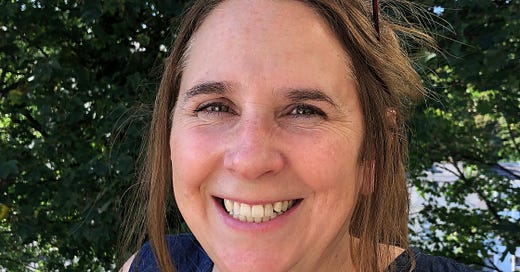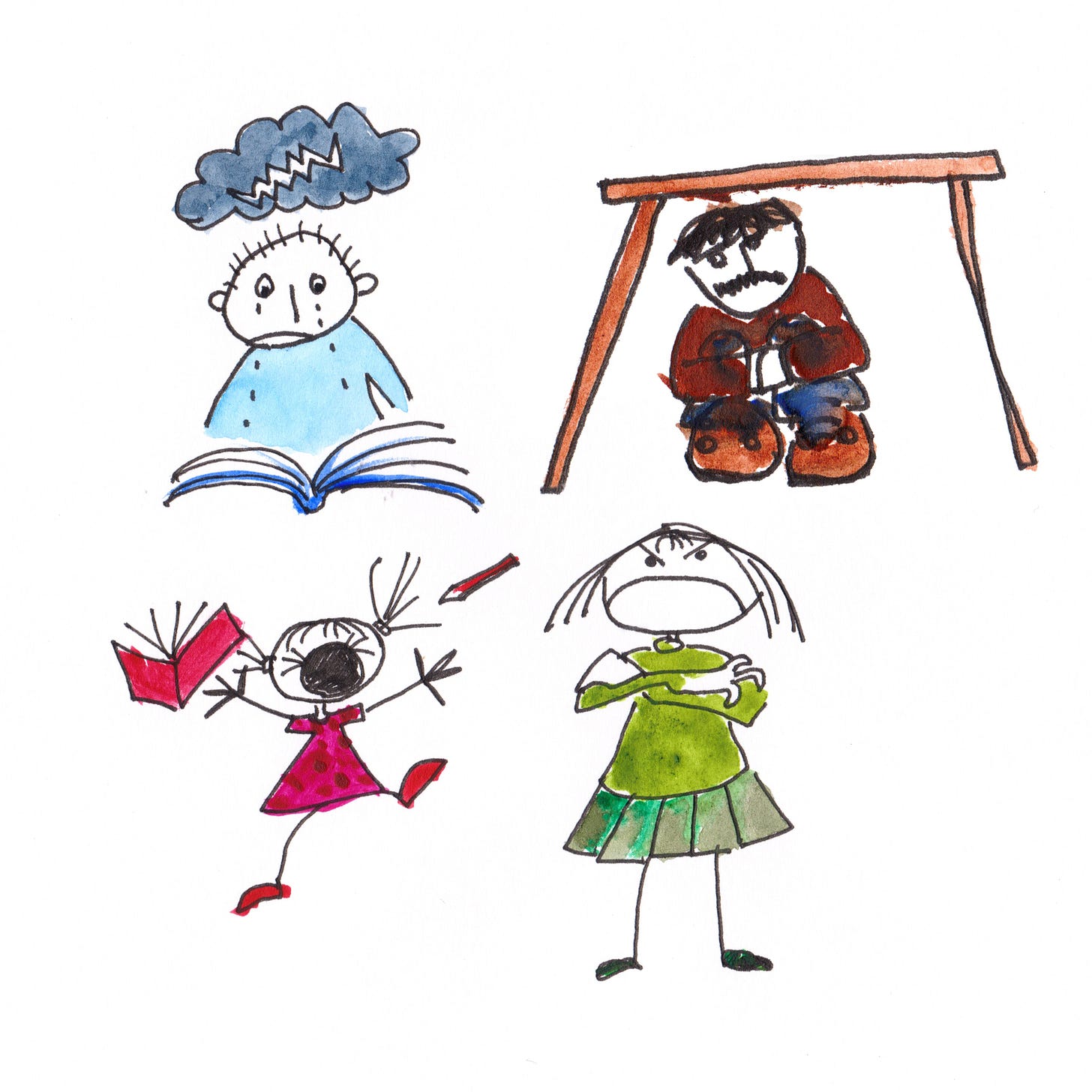Our Cork 2040: There'll be no more homework
The homework given to primary school children is ineffective and is robbing dyslexic children of the time they need to experience success, illustrator and educator Danielle Sheehy argues.
Welcome to the penultimate Our Cork 2040. We are running the series up until next Sunday, which is the day before the deadline for public submissions for the Cork City Development Plan 2022-2028.
Cork City and county are growing. The draft Cork City Development Plan 2022-2028 expects to build 20,000 homes in the city by 2028, while national plans under Ireland 2040 expect to see the city’s population double.
The Our Cork 2040 series is based on the idea that it’s the people who live, work, raise families and face all of life’s challenges in Cork who really hold a stake in the future of the city and county, not developers and anonymous corporate entities.
Our Cork 2040 presents a variety of writers with different areas of expertise, experience and interest.
Our contact details are here. If you like what you read and want to support quality, independent local journalism, subscribe below.
Our Cork 2040: Danielle Sheehy
Danielle Sheehy grew up in Wicklow and graduated from the Glasgow School of Art with a BA in illustration and graphic design. She did a postgraduate diploma in administration in UCD and a Hdip in adult education at the University of Limerick. She went on to complete an MFA in sculpture at the College of Fine Art in Sydney, where her work was purchased by Macquarie University.
Danielle is the co-ordinator for a programme for people with disabilities which develops skills towards education and the employment with SECAD, a local development company in East Cork, and works as an art teacher with Cork ETB. She lives in St Lukes with her husband and two children.
Homework is time badly spent
The thing about homework is that a lot of people believe that it doesn’t work; the kids who do homework don’t actually get significantly better results than kids who don’t do homework. Those kids could be spending time doing something that interests them that’s not academic, that’s not in the school system.
Kids with dyslexia really struggle in school. Doing more schoolwork at home doesn’t give the dyslexic child the opportunity to be successful at something. They could be successful at swimming, or art, or they could just be really good communicators and hanging out with their friends and chatting for hours and hours is a successful thing for them. If their time is taken up with more homework, they don’t get an opportunity to experience that success; their only success is through the lens of education, and that’s always distorted by their dyslexia.
My recent body of work is really about the early years in primary school and the three Rs. Primary school kids are doing spellings, tables and word searches every night, but if you get a student who is dyslexic to do tables every night for twenty minutes, they’ll do the work and they’ll go to school the next day and they’ll write what they remember, get half of them wrong, and they still won’t be able to tell the difference between whether they’ve got them right or wrong.
That twenty minutes every night, plus all the anxiety of a spelling test, is really counter-productive. That twenty minutes is time badly spent.

My own dyslexia
I’m very dyslexic, which can be quite embarrassing. When I’m trying to write, I read back over things I’ve sent out into the world and I think to myself, ‘I can’t believe I wrote that; that doesn’t make sense.’ Even I can spot my own mistakes, but I’ll spot them retrospectively, not at the time.
I got assessed for dyslexia when I was doing my postgrad in UCD. I went and had a test and they told me I had no working memory. And actually, working memory is the big issue with dyslexia. It’s not just swapping your bs and ds. All the forgetfulness and untidiness isn’t deliberate; it’s a byproduct of dyslexia. If we could be trained with some skills in working memory that might be useful, but trying to rote-learn anything isn’t going to work.
I sort of knew by the time I got into University: I went to art school so it wasn’t much of a disadvantage because I find my dyslexia gives me a good edge on creative thinking and I did illustration and graphic design and would never have a problem coming up with five ideas for each brief I was given, which is a skill in itself.
I learned my spellings for the first time when I was trying to get my daughter to learn her spellings. Ask either of us now, and it’s all gone. The only ones I remember are any ones that have a trick to them. So to remember the difference between “diary” and “dairy,” I made up this silly little thing, that the i comes first in diary because I write in my diary, and dairy makes the air smell like cheese.
The skills that got me through my life were what I did in the evenings after school; drawing comic strips and making sculptures, which eventually got me into art school.
Agatha Christie was dyslexic, Einstein was dyslexic, Richard Branson, Steve Jobs, James Dyson: a lot of science people too. It really isn’t despite their dyslexia that they are top of their field. It’s because of their dyslexia. 40% of self-made millionaires are dyslexic, and yet dyslexic people only make up between 5% and 10% of the population.
My daughter’s dyslexia
My daughter did her Leaving Cert this year.
When she started secondary school, she did a test and was put into her English class. She came home and told us that no-one in the class was doing their homework, so we looked at her textbooks, and they were all abridged versions of plays and things: it was clear she wasn’t doing honours.
We’re lucky that we already knew how smart she was, and that she needed to do full plays, full essays and have really high expectations for her. It’s important not to limit your expectations of your dyslexic children; just because they can’t spell doesn’t mean that they can’t write. It took some letter-writing to get them to move her to honours.
She got an A in honours English in her Leaving Cert exam.
She had a reader, and she typed everything and she had a spelling and grammar waiver, but you don’t get top marks in English without knowing your material. So the supports do work: they just need to be put in place. And we did have to do a fair amount of fighting for her along the way. She wouldn’t have got to where she’s at without the supports, and we wouldn’t have known about the supports if I wasn’t dyslexic and a little obsessed with it.
The four horsemen of the homework apocalypse
I illustrated a book with Sascha Roos called At Home With Dyslexia, which was published a couple of years ago.
In it, I did an illustration of the four horsemen of the homework apocalyse: despair, avoidance, rage and refusal.
All were familiar visitors at homework time at my house.
Parents get roped in to police this homework that their kids have been given and it’s very stressful. Sascha was my daughter’s dyslexia coach for a decade, and one of the things she said to me was, '“don’t be a teacher at home.” You’re trying to get them through this system and it’s damaging, because they are having a bad relationship with the school, but it’s also damaging their relationship with their home, where they need to be able to unwind.
All behaviour is communication. So if your kid is hiding under the table and looking like thunder and avoiding the world, they are saying something to you and you shouldn’t ignore it.
They are embarrassed that they can’t do their homework, that their work looks terrible and is messy. They know it’s going to look like that, so why would they want to sit down and do more of it? Really, they want to sit and watch TV or going to sleep for half an hour, or going to scouts or running up a mountain. And those are all good things to do.
A brutal history
Dyslexic people would have been really valuable in a pre-literacy world, when the people who were really valued were masons, woodworkers and builders. Dyslexic people are often really good at visualising things in three dimensions and making it happen.
The history of education for children with dyslexia is pretty brutal. Because so many people in my family are dyslexic, you can trace the improvements over time.
My dad and uncle had a very hard time in school, with actual violence, which is terrible. Then I sort of got away with it; my school was a tiny protestant school in Wicklow, and we had a huge turnover of teachers and a chaotic atmosphere which suited me quite well. I remember trying to learn my spellings and not being able to do it, and trying to cheat, which is a bit difficult when you’re in a class of two and the teacher is standing next to you.
I used to ask the other girl in my class, who used to get all her spellings right, how she did it. She told me she read over them at home. Just read them. I was writing them out ten times and then reading over them until I fell asleep. I was never given any help at all. I did know there was a problem there and my mum did too, but I didn’t read until quite late.
Things are getting better; my kids got recognition fairly early, at around eight, and they were told that they were very, very intelligent, which gave us all great confidence that they’d be fine but that they just needed to find their thing.
How is mainstream education doing now?
Not every kid wants to go to university, and yet the focus of our education system is to get them all into university. Things are starting to change and there are more apprenticeships coming up, so that’s really positive.
You can’t have an entire economy of people who sit in front of computers. You need farmers, mechanics, plumbers, horticulturalists. Those people are needed too and there is more room for dyslexic people in some of those careers.
Really, the early years primary education is where my interest currently is, and I don’t know if it’s changed very much for a long time.
There are a lot of fidgety kids and that’s a flag: it’s all back to behaviour telling you something. You don’t want the fidgety kids to just be told to stay put because again, they are communicating something with their behaviour.
People are young for such a small amount of time and physically little for such a short time, that it seems like a shame to make them sit still for such large amounts of this small period of their lives. It’s harsh to do that to them, and it really is very much to keep them in nice, tidy rows.
Teachers aren’t mean, they’re just using the methods they’ve been given. The school system is such that it teaches to the most amount of children, so if you’re an outlier, they are trying to teach you using methods that work for other people, and quite often they don’t work for dyslexic kids.
A golden age
Now we’re coming out of that timeframe in history where everything was dominated by text. Kids are watching TikTok; it’s all visual and spoken information, so the way kids are getting information isn’t text-based any more. They’re using film and sound media.
We’re living in a golden age now: most people have speech-to-text technologies in their pocket, on their phone. When I was doing my postgrad in the mid-nineties, Read & Write Gold was really cutting edge technology: I got to try out the first package that UCD had of it, in 1995. 25 years later, most people would have a PDF reader in Microsoft word.
So instead of teaching kids who will never learn spellings how to do their spellings, the time would be better spent teaching them how to engage with technology that would get the information into themselves without the barrier of text.
By 2040
By 2040, I’d like there to be a lot more learning through play. They need to participate through movement a lot, with more physicality in their learning. And not all kids learn by sitting down in front of a book.
You’d want to see all kids encouraged to learn in ways that suit them. But the education system is very slow to catch up, and it’s hard to get change through the system. Schools could change the way they work and there are places like the Life Centre which are designed for kids that mainstream schooling doesn’t suit, and there’s space for a lot more places like that, and places like Steiner schools.
And by 2040, I definitely think there should be no more homework, for primary school children at least. They are in school for enough hours of their day. There should be time to do other stuff and developing other life skills: cooking, gardening, relaxing, socialising.
Danielle’s exhibition, What do we want? No more homework, is at the MTU Crawford Micro-Gallery on Grand Parade from October 2 to 29. October is Dyslexia Awareness Month.





Interesting and easy to understand